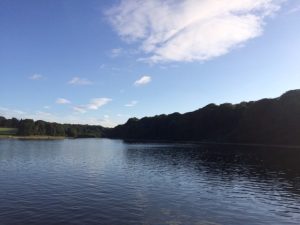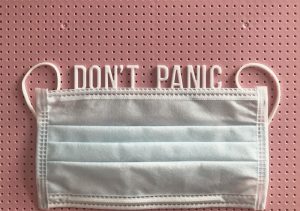The global pandemic of COVID19 has in some ways sent a global population into shock. A form of trauma response.
As a survivor of sexual violence and someone who has gone on a long and deep road to recovering even thriving from my trauma, I can see the parallels all too well. We’ve been FORCED into things we’d much rather not do, we’ve had our basic HUMAN RIGHTS removed (freedom to wander, connection with others outside of our home), FEAR lurks around every corner as the imminent and non-discriminating sound of death could happen to any of us at any moment. We are literally in a weird parallel of survival mode.
In usual circumstances of survival mode (an unexpected fear that threatens your very life and safety), the body quickly responds. The first thing that happens is our rational thinking pragmatic brain is taken over by our survival primordial brain, the amygdala. Our survival instinct has five ways to respond to the threat, and will usually work through them in the following order;
- Friend – try to ease the situation by talking way out of it
- Flight – if unable to ease the situation, quickly scans to see if an escape route is viable to flee from
- Fight – if there appears to be no way out physically, the body will prepare to fight (dependent on odds which are usually made up of an instinctive and simultaneous assessment of the physical strength of the potential attacker/s
- Freeze – if the body/amygdala determines there is no way to succeed at the fight without significant injury, it will freeze
- Flop – if the body starts to experience injuries that would be made worse by staying frozen and rigid, it will flop/faint/pass out
For the last decade there has been much written about the effects of PTSD, post traumatic stress disorder. How the body stores the memory of stress and responds in an often irrational way to smaller seemingly less threatening but none the less threats. People can remain trapped in their trauma for a long time, leading to a lifetime of pain and suffering.
In more recent years, further science has emerged to show that actually, the opposite is true for many survivors of trauma, that in fact their trauma actually has the capacity to help them grow. Making way for the term Post Traumatic Growth.
In the research by Haidt (2006), it was discovered that PTG benefits fall into three categories;
- Feeling stronger and finding hidden abilities and strengths which changes the persons self-concept and gives them the confidence to face new challenges, ‘if I can survive this I can survive anything’
- Good relationships are strengthened, which is reflected in how people often speak of ‘finding out who their true friends are’
- Priorities and philosophies concerning the present day and other people are altered e.g. living for the moment and prioritising loved ones
So whilst our individual responses to corona are not quite as intense as ‘typical trauma experiences’, fear being around the corner, the impact of forced changes to our behaviours being palatable and easy for most, it will be calling us on some level to choose how we want to respond. We get to choose whether we utilise this experience as an opportunity for growth and evolution or whether we allow ourselves to feel victimised, banished, hard done to or dominated.
By way of leaning towards post-traumatic growth, here are some insightful questions you might want to give space to explore:
- what are you learning about yourself (as a strength or development area) through the COVID19 experience?
- what muscle (physical, mental or emotional) do you need to exercise to cultivate more resilience for this context and set of circumstances?
- how is it helping you to prioritise what really matters in your life?
- what changes are you already hoping to put in place when reintegrating into the new normal that will serve your wellbeing or that of those you love the most?
- how are you finding purpose and meaning in the hardest days?
Oasis can help shape proactive employee wellbeing strategies and initiatives to help your people achieve their full potential and sustain your organisation into the future. And for coaching programmes and coaching support, head to our coaching site at oasiscoaching.org.uk











